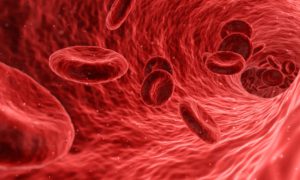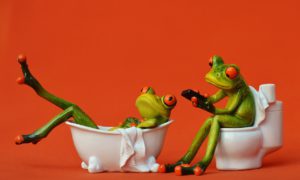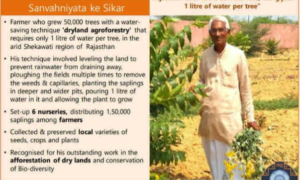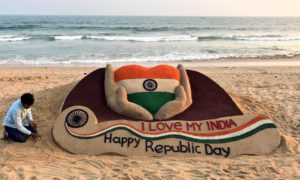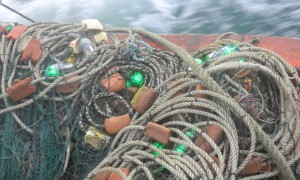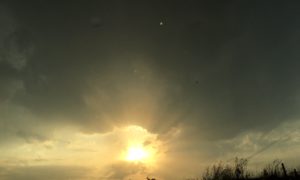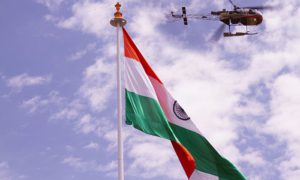Who owns the Water? The Tragedy of Commons!
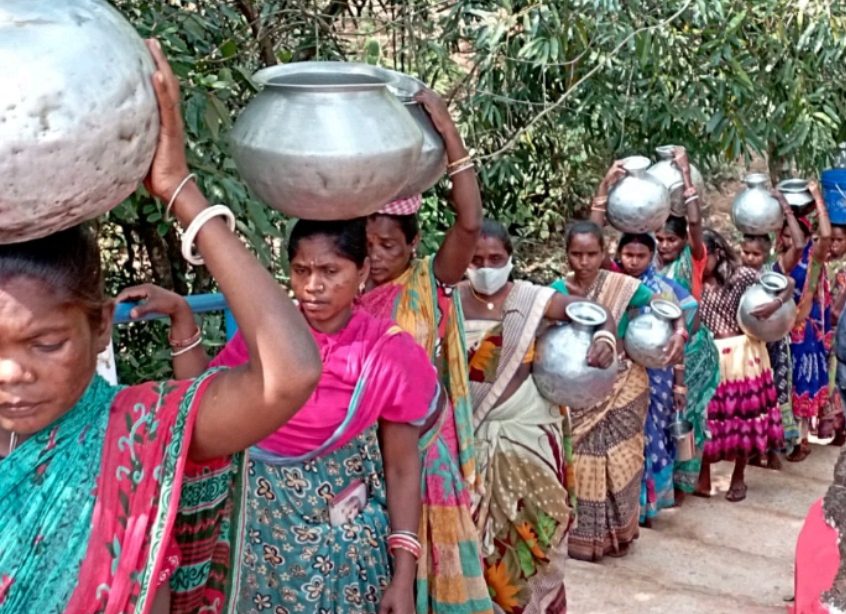
“Who owns the Water?”- remaining within the cuddle of my grandfather, I asked this question to my genius, non-digital Wikipedia.
In those early childhood days, my grandfather used to be my one-stop solution, having answers to all the queries as well as ready to fulfill all my wishes.
If I get caught up by any issues or messed up with any puzzle then I looked at him for the solution. On one occasion, while playing football I felt thirsty as I had forgotten to carry my water bottle to the playground.
I asked my friend Rohit, to lend me his water bottle to which he vehemently refused by saying that “I won’t give it to you, this is my Virat Kohli Wala Black Water”.
I felt offensive by his rejection; however, I held my emotion at that point of time and converted that unhappiness to philosophical one during my story time with grandpa.
Smilingly he said, “no one owns the water my dear, it is a free good, a gift from Mother Nature to all her children.
You can only collect it and use it but cannot own it. Each species on this earth should have equal access to this pollution free and natural free good as it is the primary requirement to hold life on this planet.”
This validation by my paladin erupted the underneath anguish and gloominess.
Immediately I asked him “then why did Rohit said, ‘it is my water’ and did not lend me to drink?”
May be he could understood the pain of denial of few sip of water during intense thirst for which his casual grip around me converted to a hold, filled with warmth.
His voice got infused with kindness, compassion and he said, “Rohit didn’t do the right thing by denying water to a thirsty boy. You know dear, in our time declining the request for water to a thirstful person used to be a very bad manner”.
To move on from that sorrow and misery of mine he shifted the conversation to a higher philosophical engagement.
“You see! Claiming ownership over water is a modern day concept propelled by the market oriented temperament.
Water exists on earth in all its three forms and rotation in these stages of water making completion of hydrological cycle thus balances the availability of water for consumption by different species.
Mostly when it remains in the liquid form, it flows towards the sea and along its path it quenches the need of different species like trees, animals, birds and humans.
Off all the species, humans have discovered the ways to harness the maximum benefit out of it along with polluting, exhausting and claiming ownership over the waterbodies”.
Further continuing his dialogue with me he said, “Half a century back, water sources used to be venerated with great respect and utmost care were taken to refrain from polluting the water bodies.
Springs were considered to be the most prized possessions of communities and rivers as well as big water bodies were treated as holy and place of worship.
However, the reverence and respect for the water bodies slowly disappeared over time with the supply of tap water at home.”
Instantly a question pop-up in my head, “did you have tap water as well in your childhood days?”
We used to drink water directly from our open wells.”
Listening to my question a nostalgic smile emerged on his face as if he was remembering his old days. With a fixed gaze somewhere, as if he were encountering his old good days, he said, “we didn’t have any tap water in our village rather open wells were our supplier of water for household consumption and for cattle, agricultural purpose we were dependent on ponds and flowing river channels.”
A sudden rush of happiness emerged in grandpa’s face, looking straight into my eyes he said, “Our open well water used to be very cool and pleasant during summer and during winter it used to be slightly warm and regarding taste, it had a poignant, sweet taste, sweetest among all the village households.
My mother used to complain that as I drank too much water my stomach got filled and I barely feed anything.” A happy smile surfaced on his face while my mind got encapsulated with another question.
So abruptly I intervened in to his dialogue by saying, “but grandpa, water is color less, odorless and tasteless, then how come your water was so tasty and cool without refrigeration?”
With a convincing smile he said, “What you are saying are text book writings, but practically the taste and smell varies depending upon the source of water that you are drawing from.
If you take tap water, the taste and odor remains the same across most of the regions as it is being processed in a standard procedure in a purified plant.
But if you take water from a well, depending on the layer of stone that the water has travelled through, the taste changes.
Different layers of mineral stone have their add-on effect on the water quality and taste.
The stream water, the pond water and the water from river has their own unique taste, odour because of the presence of different mineral component.”
“With regard to color, as the water travels through the soil or rock it gathers the color of the material. “Black Water”, as your friend mentioned, is blackish in color as it passes through fulvic minerals and captures the black color.
In our childhood days to purify the river water we used to adopt this method of cleaning the water by passing it through sand and charcoal.”
In order to make me understand the importance of water he caressed my head and said, “You know dear, water is a very prominent component in our daily life. Without food we can survive for a couple of days but without water it is very difficult to survive even two days.
That is why the erstwhile wealthy people used to dug ponds and wells for the larger cause of the humanity.
Liquid water is a gift of Mother Nature to all her children inclusive of all the species.”
While celebrating the World Water Day on 22nd March, the erstwhile conversation with my grandfather cropped up in my mind.
The water scarcity is looming large over the earth due to mismanagement of surface water and un-mindful drawing up of groundwater.
It is high time that the humanity should work together to ensure water conservation is promoted so that there is enough water available for each and every species.
If we fail in saving enough water, probably the days are not far ahead that we may end up in war for water only.







